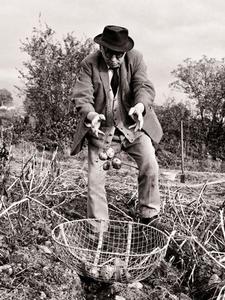Blog
Nevertheless
Posted On: 01 Feb 2019Patrick Kavanagh, the great poet of field and life, was once in McDaid’s Pub when who walks in but Ted Hughes, later to become Her Majesty’s poet laureate.

Patrick Kavanagh, the great poet of field and life, was once in McDaid’s Pub when who walks in but Ted Hughes, later to become Her Majesty’s poet laureate. Hughes, being the confident type, had no problem at all walking over to Kavanagh, whom he had never met before. The chat and drink went on amiably enough when the Englishman announced that he had to leave to give a university talk. Kavanagh, curious, waited and then quietly followed him out the door. Settling himself at the back of the auditorium, it bustled in anticipation as it never would for him. The Trinity students waited in great expectancy for the lauded English poet to mount the stage.
Ted Hughes, educated in the Classics at Cambridge, gave the sort of ‘from on high’ talk to the assembled middle class students that Kavanagh, an uneducated man and son of a poor cobbler, could only dream of. And I’m sure he did. Hughes’ good looks and complicated love life had also caused him by this time to grace many magazine covers. An international star of the page. And one who was swarmed by the (mostly female) students immediately afterwards. Anyhow, after the talk Kavanagh got up and walked the wet street back to the pub. By bad luck who was there in attendance but another Classically educated English poet, a man of the same name as his own no less, Patrick Kavanagh. I know this as I met this other younger Kavanagh once, and he told me so.
English Poets with an education in the Classics from Oxford or Cambridge do have more lumber to work with. No doubt. And in ways an easier time of it. Their poems, peppered with knowing nods to obscure mythology, and opaque references to the Iliad, can easily give an impression of weight that isn’t actually there. Thus allowing them a few free steps up the ladder of literary advantage. But back to the moment.
This young English Kavanagh, then just starting out in his trade (and later to become reasonably well-known, in England), also walked over with no preamble to the older poet.
“Hello, I’m Patrick Kavanagh” he said, in that confident sparky nanny-brought-up voice.
“Is that right” replied Kavanagh, who was now fighting on two fronts
“Yes, I’ve come over with Ted”
“Quite the orator”
“Known for it”
And so on it went, the young man’s talk of Ted Ted Ted and the causal inconsideration of Kavanagh’s own considerable talent when another drinker, Dublin working class this time, took the liberty of joining the conversation. And first line out of his mouth, “How comes Paddy you can only write of sticks and twigs?”
Three fronts was too many. Kavanagh gathered himself to leave.
The naive young Englishman, seeing his window was closing, said “Any advice?”
Downing his drink Kavanagh replied, “Besides changing your name?” And then trod for home.
Another Irish great, and one of the finest actors of his generation, is Dublin born Michael Gambon. While he may have ‘just’ been born in Dublin, he does possess a truly Irish sensibility. And one of the best jokes I’ve heard. Just finished Alec Baldwin’s autobiography and there it was again, at the very end, Baldwin’s favourite joke. But be forewarned, it does contain a misogynistic epithet. It goes something like this.
Lord So-and-So, an English tragedian in the mould of Donald Wolfit, upon whom Ronald Harwood based the character of ‘Sir’ in his play The Dresser, is touring the provinces, performing Anthony and Cleopatra. One evening, he takes to the stage to make an announcement.
ENTER SO-AND-SO (to applause)
SO-AND-SO (quieting the audience)
“I regret to inform you that tonight the role of Cleopatra shall not be portrayed by Lady Margaret Thornbush (a murmur in the crowd), but instead shall be assayed by my wife, Emily Treadwell”.
SPECTATOR (from the back of the house and shrill):
“Your wife’s a fucking cunt!”
SO-AND-SO (after a pause):
“Nevertheless”


